'It's all here, in all its gory detail...' David McCullagh reviews Ireland's Call: Navigating Brexit, the new book by Stephen Collins, former Political Editor of The Irish Times.
As the rolling omnishambles that is British politics continues to attract our horrified fascination, it is sometimes difficult not to laugh.
After all, it seemed impossible for the UK to find itself a Prime Minister worse than Boris Johnson. And yet, Britain, or at least the members of the Conservative Party, have managed to do just that.
Liz Truss is still Prime Minister as I write this; whether she remains in 10 Downing Street by the time you read it is another matter.
And yet, we need to remember that the whole sorry mess affects us too, particularly because of the never-ending saga of Brexit, which is not just a monumental act of economic self-harm, but also harms us.
And if you need a reminder of the twists and turns of Brexit, the ineptitude and miscalculations, this new book by Stephen Collins lays it all out in a highly readable manner.
Remember Triggering Article 50? Remember the Meaningful Vote? Remember Salzburg and Chequers, David Davis and David Frost, the backstop and the frontstop?
It’s all here, in all its gory detail.
Ireland's Call, as the name suggests, is mainly about the Irish response to Brexit, and the successful diplomatic effort to make sure our concerns were central to the EU approach.
Reading Stephen Collins’s well-informed account suggests three main lessons from that successful effort: the importance of being prepared; the necessity of knowing what you want; and just how much personalities matter.
First, the importance of preparation. According to Collins, Irish officials began preparing for Brexit from the moment David Cameron announced the referendum date, while Cameron refused to allow his own officials to plan for a Leave Vote.
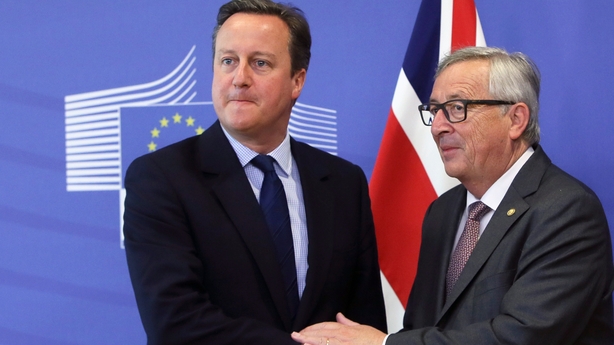
president and British prime minister, respectively, when the UK voted to leave the EU
When the result came in, Cameron resigned, leaving Britain in a policy limbo. In stark contrast, the Irish Government was immediately out of the traps with a detailed plan and clear messages: Ireland would not even consider leaving the EU with Britain; there could be no hard border on the island of Ireland; Ireland and Britain must retain the Common Travel Area. Foreign Minister Charlie Flanagan had spoken to his counterparts in all 26 other EU member states within 48 hours of the vote; over the following months he visited every EU capital at least once.
Second, knowing what you want is vital in any negotiation, and was one of the big problems on the British side (EU officials complained that the British spent most of their time negotiating with themselves rather than with Brussels).
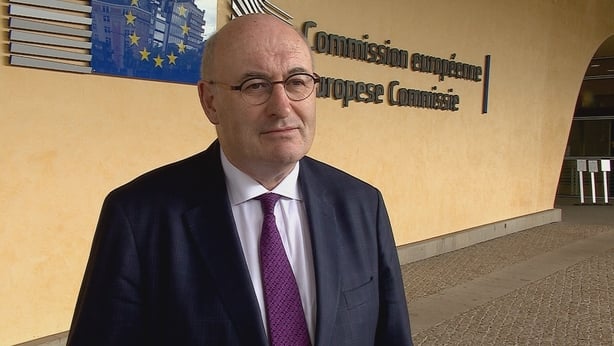
For Ireland, the key thing was to ensure the possibility of a border in Ireland was dealt with in the Withdrawal Agreement, before the negotiations on Britain's future relationship with Europe. The reason was simple: Brexiteers hoped, and the Irish feared, that if the Border was the only issue delaying a trade deal, Ireland might be sacrificed.
Dublin did flirt with the idea of agreeing technical solutions with London to get over the Border issue, but it quickly became obvious that the British didn’t have a clue about what they wanted or how to achieve it. And Ireland’s man on the European Commission, Phil Hogan, was warning of the importance of being, and being seen to be, on Team Europe. He was also worried that his former colleagues did not appreciate the centrality of the EU’s point man on Brexit, Michel Barnier – because it was Barnier who could keep Irish concerns to the fore in negotiations.
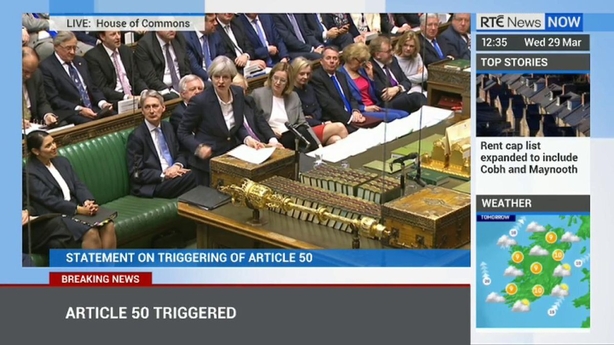
And he did. When May triggered Article 50 of the Lisbon Treaty to start the process of leaving the EU in March 2017, the EU placed Irish concerns at the centre of its Draft Negotiating Guidelines, with the Irish Border one of three issues that would have to be solved before talks on the future relationship began (the others being the rights of EU citizens in the UK, and the size of the financial settlement Britain would have to make as it left the Union).
Collins quotes an EU official who suggested that other governments included the Border in the Guidelines without realising just how big a stumbling block it would prove in the negotiations. But once the issue was included, it couldn’t be removed without Irish agreement.
And Irish views were taken into account right through the process. As negotiations got under way, Irish officials were given a room in the building where the talks were being held; at intervals in the discussions, Barnier’s officials would brief the Irish and ask them about what was acceptable or feasible.
Preparation, and identifying the key issues, had paid off.
And what about the third factor, the importance of personalities? Theresa May was sometimes compared by the British media to a malfunctioning robot. While this was undoubtedly unfair, there is no doubt that she wasn’t great on personal interactions. This didn’t matter so much while Enda Kenny was Taoiseach – Collins quotes an Irish official who said that Kenny’s "natural ebullience ensured that their meetings ticked along".
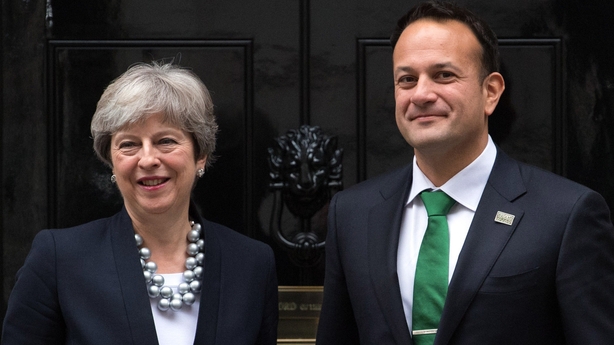
Leo Varadkar, however, is a very different personality, and officials noted that he and May "didn’t click at all", and there were long silences during their meetings. In fairness, Varadkar did try. At the start of one meeting, the official recalled, the Taoiseach complimented a bracelet she was wearing, "expecting her to say thank you or some such but she just said nothing". Ouch.
Given this, it is perhaps not surprising that the two of them couldn’t find a way through the maze. Boris Johnson, however, was a very different personality, and Varadkar appears to have got on much better with him.
In an interview for this book, he said he thought Johnson "was the kind of person that you would be able to do a deal with because he had shown himself to be relatively flexible... I always got the impression that he was keen to have an election mandate. I was also keen to have an election mandate. And I kind of thought that as two politicians who wanted an agreement, and were potentially both heading into elections within six months, that it would be possible to cut a deal with him, despite the sabre-rattling and diplomatic posturing that was going on."
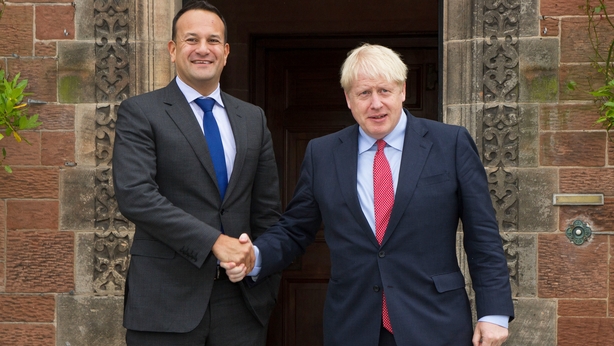
And cut a deal they did, at their meeting in the Wirral outside Liverpool, where the two men surprised their officials by meeting alone for an hour and a half.
The upshot was that instead of a UK-wide backstop, a border on the island of Ireland was to be avoided through the Northern Ireland Protocol, which kept the North subject to EU rules. In return for thereby throwing the DUP under the bus, Johnson secured Irish agreement to a role for the Northern Ireland Assembly in giving consent to the arrangement.
The irony was that Johnson used his climbdown to secure an election victory, while Varadkar was unable to convert his victory at the Wirral into electoral success. That’s politics for you.
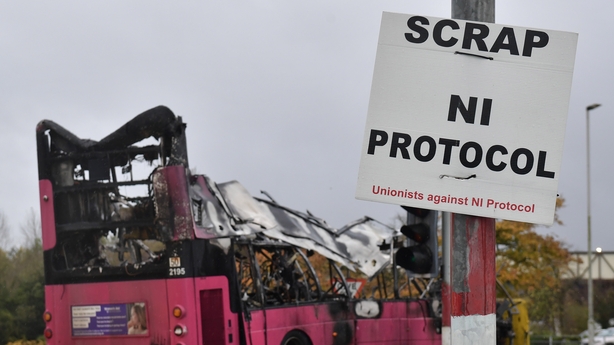
This is a well-written account of the period, with perhaps two minor caveats to mention. The first is that it is very much the Irish view of things, the second that this story is, of course, not yet finished. Despite Boris Johnson’s election claims, Brexit is far from "done". But as the tortuous rows over the Northern Ireland Protocol continue, Ireland’s Call is a useful reminder of how we got here, and why.
Ireland's Call: Navigating Brexit is published by Orpen Press.

